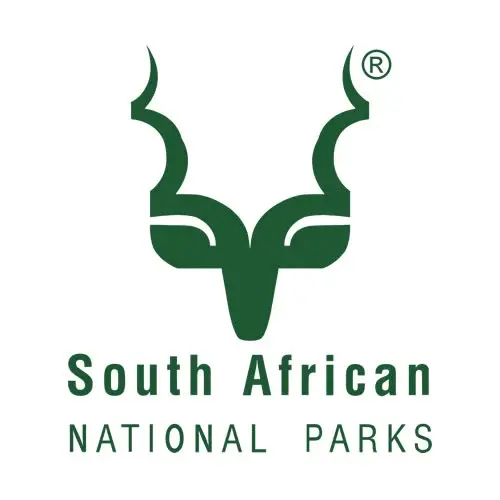Manager: Employee Wellness (re-advertisment)
Permanent10 months ago
Employment Information
Requirements
- Be in possession of an NQF level 8 Degree preferably a Clinical/Counselling Psychology /Social Work Degree).
- Be registered with a Statutory Council (SACSSP/ HPCSA) to render therapeutic services and have an EAPASA membership
- Must have 5 years of EAP working experience.
- Thorough understanding of the Employee Wellness Strategy.
- Have a driver’s license.
- An understanding of the relevant legislation.
Responsibilities
- Align wellness plan with organisational goals.
- Conduct surveys, focus groups, and or individual interviews to gather comprehensive insights into the wellness needs of employees within the region.
- Develop a holistic wellness program that integrates diverse elements like physical, social, and mental health, nutrition, stress management, emotional well-being, and work-life balance.
- Managing budgets effectively and exploring cost-effective ways to implement wellness initiatives without compromising quality.
- Regularly assess programme effectiveness by using data-driven insights to make informed adjustments.
- Find creative ways to incentivise participation for consistent engagement.
- Regularly communicate wellness program updates, success stories, and upcoming events using various channels like information broadcasts, emails, newsletters, and intranet.
- Implement the ECD, recreation, hostels, and wellness unit program plan.
- In-depth understanding of various lifestyle choices, stressors, and their impact on overall well-being to promote healthy choices.
- Promote Mental Health Awareness and recognize signs of mental health issues, address, provide support, and promote a stigma-free environment.
- Conduct research into substance abuse prevention and intervention strategies. As well as understand the complexities of addiction and its effects on employees.
- Explore advanced EAP strategies. Consider tailoring services based on employee demographics, industry-specific challenges, and cultural nuances.
- Manage clinical cases and understand risk identification, timely interventions, and ethical considerations.
- Build a robust network of therapeutic counsellors and specialists to ensure appropriate referrals based on individual needs.
- Monitor and evaluate the impact of the initiatives, and ROI which includes employee satisfaction, productivity gains, and reduced absenteeism.
- Collect detailed health and wellness data, including individual health risk assessments and participation rates.
- Analyse patterns and trends. Consider statistical methods, predictive modelling, and benchmarking against industry standards.
- Fine-tune programs based on data insights. Proactively address emerging wellness needs.
- Create a concise insightful report that highlights key findings, actionable recommendations, and ROI metrics.
- Collaborating across departments, engage HR, occupational health, labour relations, and other relevant teams to understand their perspectives and integrate wellness seamlessly.
- Collaborate with external wellness service providers, navigate contractual complexities, negotiate terms, and ensure alignment with organizational goals.
- Advocate for employee wellness at senior management levels to balance organizational priorities with employee wellness needs.
- Collaborate with experts in nutrition, mental health, stress management, etc. to create a comprehensive wellness program.
- Encourage leaders and managers to actively participate in wellness initiatives as their engagement sets a positive example and motivates employees.
- Manage Volunteers (Champions and Embrace) regional wellness activities.
- Understand the legal complexities of privacy laws, consent requirements, data protection, and impartiality regulations.
- Balance employee wellness with legal boundaries, especially in scenarios where confidentiality conflicts with risk management.
- Knowledge of Ill-health and Incapacity legislation to ensure wellness programs accommodate employees’ diverse needs.
- Comply with ECD, recreation, hostels, and wellness unit statutory requirements.
- Managing diverse teams, resources, and processes.
- Coordinate and supervise activities of multiple facilities (creche, recreation, hostels, wellness unit).
- Management and support of employees during crises such as sudden death/accident.
- Support and strengthen employee resilience, adaptability, and coping mechanisms during crises such as pandemics, disasters, poaching upheavals, etc.
- Empower team members by delegating tasks appropriately.
- Performance management through regular assessment of the team’s performance.
- Build and nurture relationships with subordinates.
Documents Required
Interested persons who meet the above-stated qualifications should forward their applications which should consist of a cover letter, detailed Curriculum Vitae, certified copies of qualification(s), and Identity Document (certified within the past 3 months).
Applicants in possession of foreign qualifications are to submit evaluated results by the South African Qualification Authority.
Job location
South African National Parks (SANParks)Manager: Employee Wellness (re-advertisment) 1 Vacancy-Permanent 643 Leyds Street, Muckleneuk, Pretoria, Gauteng, South Africa |


